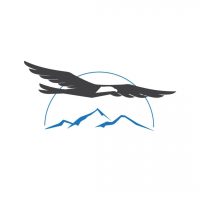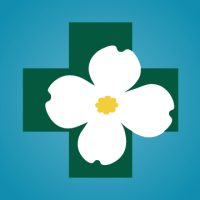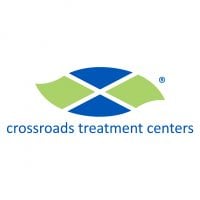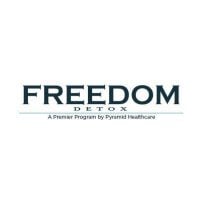Lighthouse Recovery
Drug Rehab Center in Asheville, North Carolina
- Substance Abuse
- Opioid Addiction
- Drug Addiction
- Alcoholism
Lighthouse Recovery is a drug and alcohol treatment facility that provides evidence-based care and offers short-term outpatient and residential long-term care options with individualized treatment plans, including therapy and recovery services, to help clients achieve a sober lifestyle.
Multiple patients have reported Lighthouse Recovery as permanently closed.
Research other rehabs in Asheville, North Carolina, or get help finding an open facility.
Our experts will find you an alternative facility.
(888) 674-0062 24/7 Free, Confidential, Expert HotlineAbout This North Carolina Facility
Lighthouse Recovery is a dedicated drug and alcohol treatment facility in Asheville, NC. Founded on the core principles of respect and client-centered care, the team of credentialed staff strive to provide safe and effective evidence-based care. The facility is equipped to treat alcohol use disorder, opioid addiction, and substance abuse.
The treatment process begins with an initial assessment and individualized treatment plan that may include a combination of therapies and recovery services. Clients have the option to choose between short-term outpatient care, or residential long-term care options. Therapeutic interventions range from couples and family therapy, to group, and individual counseling sessions. Lighthouse Recovery also offers professional interventions, case management, and continuing care after completing residential treatment. The end goal is to provide a holistic approach to addiction recovery that builds self-esteem and a sober lifestyle.
Genders
Ages
Modality
Additional
Conditions and Issues Treated
Substance abuse is defined by the continued use of drugs or alcohol despite negative consequences, such as legal or work problems. It can be treated using a variety of services, including therapy and medication.
Substance abuse treatment is beneficial for:
- People who have been using drugs or alcohol for a long time.
- People who have been using drugs or alcohol to cope with stress, anxiety, or depression.
- People who have a mental health disorder in conjunction with substance abuse.
- People who continue to use drugs or alcohol despite the harmful effects they cause on their own life and the lives of others.
- People who have had multiple failed attempts at recovery without medical assistance.
If you believe that addiction treatment is right for you or a loved one, you can contact your primary care physician, or search for addiction treatment centers in your area. Treatment is beneficial to people who are motivated towards recovery, and who understand the benefits of professional care.
Opioid addiction is the result of repeated use, or abuse, of opioid drugs. It is recommended for people who are dependent on opioids, or who have a high risk for dangerous health concerns, to seek professional treatment. Treatment plans usually include behavioral therapy and medication-assisted treatment.
Opioid drugs include: fentanyl, heroin, methadone, oxycodone, and oxymorphone.
Opioid addiction treatment is beneficial for:
- People who have a history of severe withdrawal.
- People with a high risk for dangerous health concerns.
- People having difficulty overcoming opioid addiction on their own.
Levels of Care Offered at Lighthouse Recovery
This center offers a variety of custom treatment tailored to individual recovery. Currently available are Drug Rehab, Outpatient, with additional therapies available as listed below.
The outpatient programs in Asheville, NC are for those addicted drugs or alcohol. The goal of the outpatient rehabilitation program is to make them stop abusing drugs or alcohol, reduce drug use or addictive behaviors, and become entirely sober. It is generally required to attend the outpatient program for 10-12 hours every week.
Patients can be administered on-the-spot medication to ease withdrawal symptoms such as anxiety, increased heart rate, and even depression. Groups such as Alcoholics Anonymous (AA) and Narcotics Anonymous (NA) can be used as a part of outpatient treatment to help maintain sobriety.
Therapies & Programs
People in addiction recovery can benefit from individual therapy. This type of therapy involves meeting with a therapist one-on-one. This allows for a personal and trusting relationship to be built so that the patient can be truly themselves and express any emotions they feel. Individual therapy leads to greater understanding and peace about your triggers for addiction and coping strategies to prevent relapse.
Couples therapy for drug addiction is based on the belief that addiction is a family disease. Everyone involved with an addict, not just the addict themselves, is affected by their behavior and the changes the addict goes through. The relationship also changes the addict’s significant other and has likely picked up some codependent behaviors. Codependency is a term used to describe a person obsessed with another person and their needs and feelings while neglecting their own. Addicts are usually people-pleasers, so it is understandable how one can become codependent in relationships with addicts.
Family therapy is a type of group problem-solving that aims to improve communication and relationships between the patient, their family, and sometimes friends. The main goal of family therapy for drug addiction is to create an environment where communication can occur without judgment, hostility, or blame. The therapist is with the family as they learn to communicate with each other differently, especially with the addict when s/he is using.
Group therapy sessions are held in rehab facilities, clinics, churches or community centers that offer drug addiction treatment. People who attend these groups are encouraged to voice their feelings and support other addicts in recovery. This helps group members strengthen their own recovery program while cheering on others who are struggling with sobriety.
Group therapy sessions provide recovering addicts with a chance to cope with everyday situations that many face. Group therapy sessions are held in rehab facilities, clinics, churches or community centers that offer drug addiction treatment.
People who attend these groups are encouraged to voice their feelings and support other addicts in recovery. This helps group members strengthen their own recovery program while cheering on others who are struggling with sobriety.
Additional Details
Specifics, location, and helpful extra information.
Asheville, North Carolina 28801 Phone Number(828) 225-4900 Meta DetailsUpdated November 25, 2023
Staff Verified
Patient Reviews
There are no reviews yet. Be the first one to write one.
Asheville, North Carolina Addiction Information
North Carolina ranks 29th in the nation for overall substance abuse. Many of the drugs abused in the state are illicit, and many of these are opioids. Prescription opioids are readily available due to the high rates of medical workers prescribing them. The number of prescriptions has increased tenfold since the 1980's. Opioid overdoses are the most common type of death in North Carolina.
The drug addiction problem in Asheville, North Carolina, is relatively bad. About 7.4% of Asheville residents aged 12 or older reported using illicit drugs. Additionally, nearly 12% of Asheville residents reported misusing prescription drugs in the past year. The most commonly used drugs are marijuana, cocaine, and heroin. Asheville, North Carolina, is a vibrant city with plenty to do. There are plenty of local and nearby rehab centers for treatment.
Treatment in Nearby Cities
- Ahoskie, NC (315.3 mi.)
- Jackson, NC (292.2 mi.)
- Frisco, NC (390.9 mi.)
- Mocksville, NC (113.6 mi.)
- Swannanoa, NC (8.7 mi.)
Centers near Lighthouse Recovery
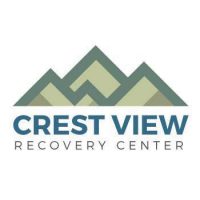
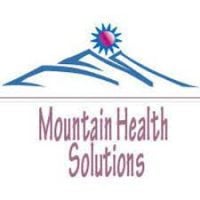
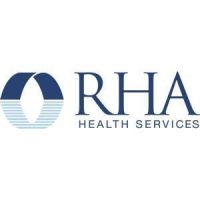

The facility name, logo and brand are the property and registered trademarks of Lighthouse Recovery, and are being used for identification and informational purposes only. Use of these names, logos and brands shall not imply endorsement. RehabNow.org is not affiliated with or sponsored by Lighthouse Recovery.

